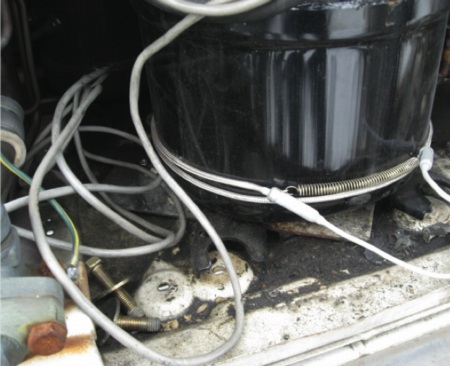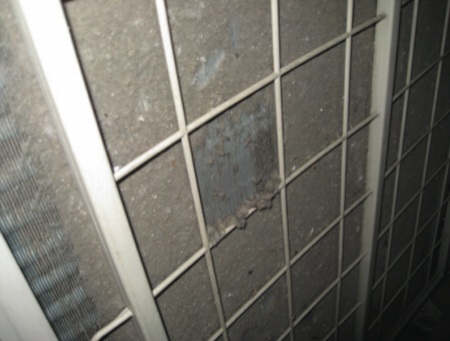Legal Aid

Mike Nankivell highlights energy legislation that could save building operators serious money and help protect our environment.
Reducing the energy consumption of buildings — both new and old, has become a major objective in the fight against global warming. The European Energy Performance in Buildings Directive (EPBD), which all EU member states are required to adopt, introduced legislation designed to address this.
Since October 2008, all properties (homes, commercial and public buildings) when sold, built or rented have needed an Energy Performance Certificate (EPC), and larger public buildings need to obtain a Display Energy Certificate (DEC). In addition regularised inspections of air-conditioning installations became mandatory from 4 January 2009.
Energy Performance Certificates
Following a study carried out during 2010, it was acknowledged that over 65% of commercial properties within its scope have yet to obtain the legally required EPC! An EPC conveys summary information about the potential energy performance of a building, its fabric and services. The Energy Performance Certificate gives an A to G rating based on CO2 emissions and is accompanied by a report highlighting measures which, if adopted, have the potential to save energy and money. EPCs remain valid for 10 years unless the building is modified.
Not all buildings require EPCs; exceptions include places of worship, temporary buildings, stand-alone buildings of less than 50 m2 that are not dwellings, buildings due for demolition, industrial workshops and some non-residential agricultural buildings.
The maximum penalty for non-compliance is currently £5000, enforceable by the Trading Standards Office. The penalty notice also includes the requirement to produce a valid EPC.
Display Energy Certificates
As indicated above, public buildings are covered by similar legislation through Display Energy Certificates (DECs).
DECs are required for all public buildings in England and Wales with a total useful floor area greater than 1000m2 and which are frequently visited by large numbers of persons; examples are central-government, local-authority, healthcare and education properties. Some privately owned buildings that provide services from public funds such as leisure centres, museums and theatres also require DECs.
To produce an EPC or a DEC requires a qualified assessor to visit the building to conduct a survey and gather information on the building size, construction, usage, type of heating, cooling, lighting and insulation.
Reports that accompany the EPCs and DECs are just the starting point for improving energy efficiency. Already there are some interesting case studies where impressive annual running-cost savings have been made as a direct result of adopting EPC, DPC and air-conditioning inspection report recommendations.
Air-conditioning inspections
The EPBD legislation relating to air-conditioning inspections implicates any building with an air conditioning system having a rated cooling output greater than 12 kW. Where the building has an air-conditioning system with a cooling output greater than 250 kW it should, by law, have had its first air conditioning inspection by 4 January 2009.

If the system has a rated cooling output greater than 12kW but less than 250 kW the first inspection should have taken place before 4th January 2011. The only exceptions to these legal requirements are for systems installed on or after 1 January 2008, which have until 1 January 2013 to arrange an inspection. Air-conditioning inspections are required to take place every five years.
It is estimated that, on average, commercial buildings in the UK are consuming 35% more energy than they should! Many installed air-conditioning systems do not perform as actually designed for a variety of reasons. Building services are often not properly commissioned or maintained, and building operators/occupants will change office layouts or adjust controls with little regard for the effect on the way the air-conditioning system is designed to function.
The efficiency of a building’s air-conditioning system should not just be measured in terms of cost or, dare I say it, impact on our global environment, but should also relate to the ability of the system to heat, cool and ventilate efficiently for the comfort of the occupants — a critical factor that seems increasingly to be overlooked by environmental policy makers.
The economic downturn and absence of Government-funded publicity or policing have been blamed for the fact that many building operators have delayed compliance with the air-conditioning inspections legislation. Late last year CIBSE suggested that only 5% of buildings impacted by this legislation were in compliance. Now that the second phase of the legislation has passed its deadline this figure must be even lower, leaving a massive number of buildings still needing air-conditioning inspections and likely to require remedial attention.
However, if non-compliance is being driven by economics, building operators need to understand that this legislation could actually help them make significant savings in running costs, enhance the value of their properties and improve conditions for the occupants.
Replacement of systems using HCFC refrigerant gas
With so many installed air-conditioning systems being quite old and relatively inefficient compared to technology available today, substantial and cost effective improvements can be achieved. Moreover, many older systems operate with an HCFC (R22) refrigerant that will be banned by 2015, so replacements for these systems need to be on the agenda.
As we begin to turn the corner out of recession, there are signs that building operators are becoming more interested in reducing maintenance and running costs by replacing, updating and increasing the efficiency of their installed air-conditioning systems.
Importantly, the Government is also looking more closely at how to encourage compliance with the energy laws, as there is a risk of very substantial and politically damaging fines if European Directives are not effectively implemented. So the watchword is ‘beware’, 2011 could see much more pressure on compliance with these pieces of legislation.
Guidance is available from the Space Air website: www.spaceair.co.uk, then click on new, then general news, then regulations and directives.
Mike Nankivell is marketing director with Space Airconditioning Plc.









